
Entirely Online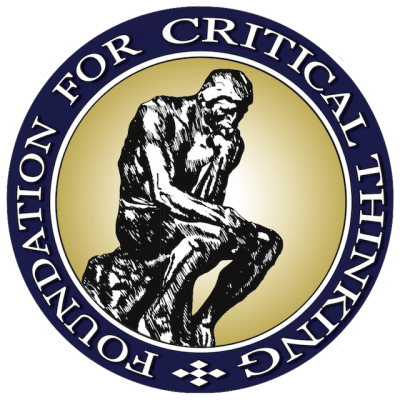

April & May Workshops
Includes 45 Days of Free Membership at Our Subscription Website:
The Center for Critical Thinking Community Online!
Access Begins One Week Before Each Workshop!
These Events Have Concluded
The world is swiftly changing, and with each day the pace quickens. The pressure to respond intensifies. New global realities are rapidly working their way into the deepest structures of our lives: economic, social, cultural, political, and environmental realities with profound implications for thinking and learning, business and politics,  human rights and human conflicts. These realities are becoming increasingly complex; many represent significant dangers. And they all turn on the powerful dynamic of accelerating change.
human rights and human conflicts. These realities are becoming increasingly complex; many represent significant dangers. And they all turn on the powerful dynamic of accelerating change.
The question of how to survive, let alone thrive, is continually transforming itself. How can we adapt to reality when we lack the time to master it before it changes itself, again and again, in ways we can but partially anticipate? And for those of us in education, how can we equip our students to face the exponentially more complicated realities they will see in their lifetimes?
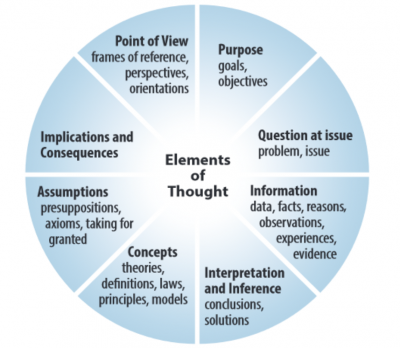 These problems require a radically different form of thinking that is more complex, more adaptable, and more sensitive to divergent points of view than traditional thought outfitted for routine and automation. The world now requires that we continually relearn, routinely rethink our decisions, and regularly reevaluate how we work and live. In short, the power of the mind to command itself – to regularly engage in self-analysis and self-evaluation – will increasingly determine the quality of our work and lives, and perhaps even our very survival.
These problems require a radically different form of thinking that is more complex, more adaptable, and more sensitive to divergent points of view than traditional thought outfitted for routine and automation. The world now requires that we continually relearn, routinely rethink our decisions, and regularly reevaluate how we work and live. In short, the power of the mind to command itself – to regularly engage in self-analysis and self-evaluation – will increasingly determine the quality of our work and lives, and perhaps even our very survival.
Join us for online workshops designed by the world's longest-running think tank dedicated specifically to critical thinking, led by world-renowned experts on the Paul-Elder Approach to Critical Thinking – the most comprehensive, robust framework for the analysis, assessment, and improvement of human reasoning to date.
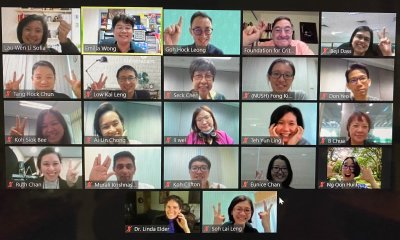 Our workshops are interactive and enable you to immediately apply what you learn in the real world. Rather than relying on drawn-out lectures, they are built on consistent participation from everyone involved.
Our workshops are interactive and enable you to immediately apply what you learn in the real world. Rather than relying on drawn-out lectures, they are built on consistent participation from everyone involved.
Attendees will be reading, writing, and discussing ideas with one another as they apply critical thinking concepts to their subjects, professions, and personal lives. You will engage in whole-group discussions and breakout room activities with smaller groups, and will have ample time to ask questions and explore the critical thinking ideas, tools, and applications being discussed in every session.
|
Four Half-Days Over Two Weekends:
Saturday & Sunday April 9-10 4:00 p.m. - 7:00 p.m. EDT
Saturday & Sunday April 23-24 4:00 p.m. - 7:00 p.m. EDT
Times Include Short Breaks
Registration Closed
Maximum Capacity: 40 Participants
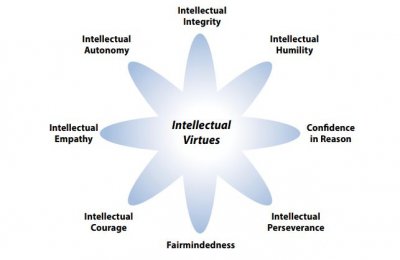 Students learn content within any subject only to the extent that they learn to think through that subject, but they can’t just use their own thinking. They must use skilled, disciplined, reasonable, rational thinking – in other words, critical thinking. To do this, they need consistent practice over time in taking important ideas and following out their implications, in integrating ideas, and in questioning them when it makes sense. They need consistent practice in applying intellectual standards to thought as they reason through problems and issues within academic disciplines. They need to internalize essential intellectual standards, then apply them over and over again to problems and issues as they think through content. In short, they can’t just learn the theory of critical thinking in an abstract way; they need to learn the theory in relation to practice by applying it (to learning and, ultimately, to every domain of human life.
Students learn content within any subject only to the extent that they learn to think through that subject, but they can’t just use their own thinking. They must use skilled, disciplined, reasonable, rational thinking – in other words, critical thinking. To do this, they need consistent practice over time in taking important ideas and following out their implications, in integrating ideas, and in questioning them when it makes sense. They need consistent practice in applying intellectual standards to thought as they reason through problems and issues within academic disciplines. They need to internalize essential intellectual standards, then apply them over and over again to problems and issues as they think through content. In short, they can’t just learn the theory of critical thinking in an abstract way; they need to learn the theory in relation to practice by applying it (to learning and, ultimately, to every domain of human life.
This workshop focuses on taking the foundational theory of critical thinking and helping college and university students internalize this foundation through practice in thinking through content.
|
|
Eligible for Donor's Choose Funding!
Four Half-Days Over Two Weekends:
Saturday & Sunday April 30 - May 1 4:00 p.m. - 7:00 p.m. EDT
Saturday & Sunday May 7-8 4:00 p.m. - 7:00 p.m. EDT
Times Include Short Breaks
Registration Closed
Maximum Capacity: 40 Participants
Webcam Required
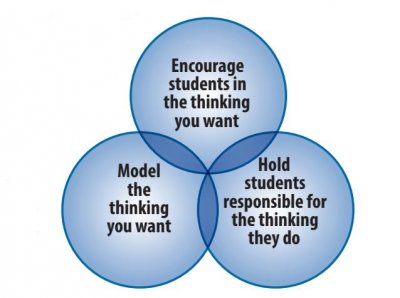 Bringing critical thinking into the K-12 classroom entails understanding the concepts and principles embedded in critical thinking, then applying those concepts throughout the curriculum. It means developing powerful strategies that emerge when we begin to understand critical thinking.
Bringing critical thinking into the K-12 classroom entails understanding the concepts and principles embedded in critical thinking, then applying those concepts throughout the curriculum. It means developing powerful strategies that emerge when we begin to understand critical thinking.
In this workshop, we focus on strategies for engaging the intellect at the K-12 level. These strategies are powerful and useful, because each is a way to routinely engage students in thinking about what they are trying to learn as they are learning. Many of the strategies offer students methods for questioning – and for appropriately analyzing and assessing – the ideas they are exposed to in the schooling process. These strategies suggest ways of teaching students how to do the (often) hard work of learning, with each representing a shift of responsibility for learning from teacher to student, and they point to methods for placing critical thinking at the heart of K-12 teaching and learning.
|
|
Four Half-Days Over Two Weeks:
Wednesday & Thursday April 20-21 12:00 p.m. - 3:00 p.m. EDT
Wednesday & Thursday April 27-28 12:00 p.m. - 3:00 p.m. EDT
Times Include Short Breaks
Registration Closed
Maximum Capacity: 40 Participants
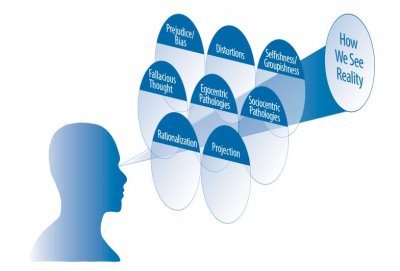 Can we deal with incessant, accelerating change and complexity without revolutionizing our thinking? Traditionally, our thinking has been designed for routine, habit, automation, and procedure. Not long ago we learned how to do our job, and then we used what we learned over and over. But the problems we now face, and will increasingly face, require a radically different form of thinking – thinking that is more complex, more adaptable, and more sensitive to divergent points of view. The work world in which we now live requires that we continually relearn, that we routinely rethink our decisions, and that we regularly reevaluate the way we work and live. In short, there is a new world facing us – one in which the power of the mind to command itself, to regularly engage in self-analysis, will increasingly determine the quality of our work, the quality of our lives, and perhaps even our very survival.
Can we deal with incessant, accelerating change and complexity without revolutionizing our thinking? Traditionally, our thinking has been designed for routine, habit, automation, and procedure. Not long ago we learned how to do our job, and then we used what we learned over and over. But the problems we now face, and will increasingly face, require a radically different form of thinking – thinking that is more complex, more adaptable, and more sensitive to divergent points of view. The work world in which we now live requires that we continually relearn, that we routinely rethink our decisions, and that we regularly reevaluate the way we work and live. In short, there is a new world facing us – one in which the power of the mind to command itself, to regularly engage in self-analysis, will increasingly determine the quality of our work, the quality of our lives, and perhaps even our very survival.
As you work through this session, you will begin to understand some of the most fundamental concepts critical thinkers use on a daily basis, including tools for the analysis and assessment of thinking. To analyze thinking, we must be able to take it apart and scrutinize how we are using each part. Once we have done this, we can then determine whether and to what degree they meet intellectual standards for thought (standards such as clarity, accuracy, relevance, logicalness, breadth, depth, sufficiency, fairness, etc.). When we have internalized the parts of thinking (or elements of reasoning) and the intellectual standards, and we begin to use them explicitly in our thinking on a daily basis, the quality of our work significantly improves.
A primary aim of this workshop is to help leaders and managers understand the fundamentals of critical thinking in order to better bring these fundamentals into daily decision-making, routinely and systematically. Participants in the program come to recognize explicitly that critical thinking is not something to add to what they already do, but rather a way of dealing with all the significant problems of work and life.
This workshop helps leaders and managers begin to:
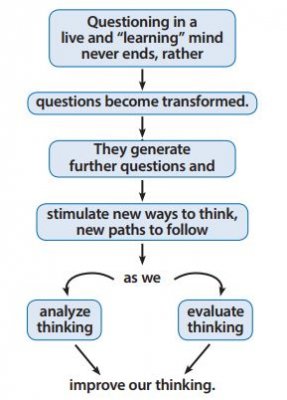 Understand the importance of developing critical thinking skills, abilities and traits in order to better reason well through complex issues on the job.
Understand the importance of developing critical thinking skills, abilities and traits in order to better reason well through complex issues on the job.
|
|
Four Half-Days Over Two Weekends:
Saturday & Sunday May 14-15 4:00 p.m. - 7:00 p.m. EDT
Saturday & Sunday May 21-22 4:00 p.m. - 7:00 p.m. EDT
Times Include Short Breaks
Registration Closed
Maximum Capacity: 40 Participants
Webcam Required
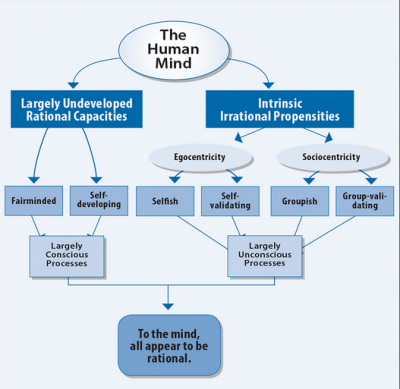 The human mind is at once rational and irrational, reasonable and unreasonable. We naturally see the world from a narrow self-centered perspective and are also highly vulnerable to influence from group traditions, mores, taboos, and customs. We are frequently selfish, self-deceiving, prejudiced, and biased. We frequently and naturally distort reality to fit our vision of it and to keep from seeing what we would rather avoid. We naturally seek more for ourselves and our group than is rightfully ours. We often act without due regard to the rights and needs of others.
The human mind is at once rational and irrational, reasonable and unreasonable. We naturally see the world from a narrow self-centered perspective and are also highly vulnerable to influence from group traditions, mores, taboos, and customs. We are frequently selfish, self-deceiving, prejudiced, and biased. We frequently and naturally distort reality to fit our vision of it and to keep from seeing what we would rather avoid. We naturally seek more for ourselves and our group than is rightfully ours. We often act without due regard to the rights and needs of others.
In short, humans are intrinsically egocentric and sociocentric. At the same time, we are capable of developing as reasonable persons. But to do so requires commitment and some fundamental understandings about the pathological tendencies of the human mind. In this workshop, we will focus on some of these painful truths about the mind. We will explore egocentric and sociocentric thought as intrinsic mental phenomena that get in the way of cultivating the disciplined mind, and hence in the way of our development as rational human beings. For those of you who teach, we will also briefly discuss implications for the classroom of this theory.
|
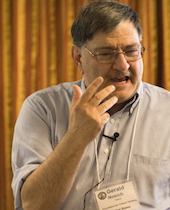
Dr. Gerald Nosich, Senior Fellow of the Foundation for Critical Thinking, has given more than 250 workshops on all aspects of teaching critical thinking, including in the U.S., Canada, Thailand, Lithuania, Austria, and Germany. He has worked with the U.S. Department of Education on a project for National Assessment of Higher Order Thinking Skills; given teleconferences sponsored by PBS and Starlink on teaching critical thinking within subject-matter courses; served as a consultant/evaluator for SACS Accreditation of programs at various colleges and universities; and has been featured as a Noted Scholar at the University of British Columbia.
Dr. Nosich is Professor Emeritus at Buffalo State College in NY, and is also Professor Emeritus at the University of New Orleans. He is the author of three books including 2021's Critical Writing: Using the Concepts and Processes of Critical Thinking to Write a Paper .
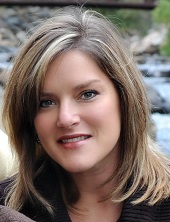
Ms. Carmen Polka has worked diligently to infuse critical thinking into her classroom instruction, curriculum, and assessment for more than eighteen years. Focused on transforming education through the implementation of quality instructional practices, Ms. Polka instigated and co-authored the Colorado Academic State Standards targeting research and reasoning based on the Paul-Elder framework. As a leader and critical thinking expert in her district, she led professional development and coached K-12 teachers to effectively utilize Paulian theory.
Ms. Polka is currently a principal at an elementary school, as well as a Doctoral candidate in the Educational Leadership and Policy Studies program at the University of Northern Colorado. She is also a licensed K-12 Special Education teacher.
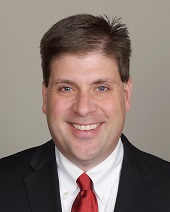
For more than seventeen years, Dr. Bankes has played an important leadership role in fostering the Paulian conception of critical thinking in multiple school districts. As a principal, he led the implementation of this critical thinking approach to bring about state-recognized levels of achievement in three different Title I schools – a high school, a middle school, and an elementary school. He helped author the reasoning portion of the Colorado Academic Standards that are based on the Paul-Elder framework. In addition to his administrative experience, Dr. Bankes was an elementary school teacher, continues teaching critical thinking courses at the college level, and is currently serving as a Director on his School Board of Education.
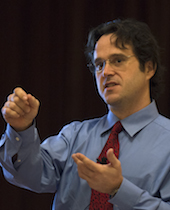
| Registration Option | Price Per Attendee Per Workshop |
|---|---|
Early-Bird Rates |
|
Standard RatesWithin 30 Days of Each Workshop
|
|